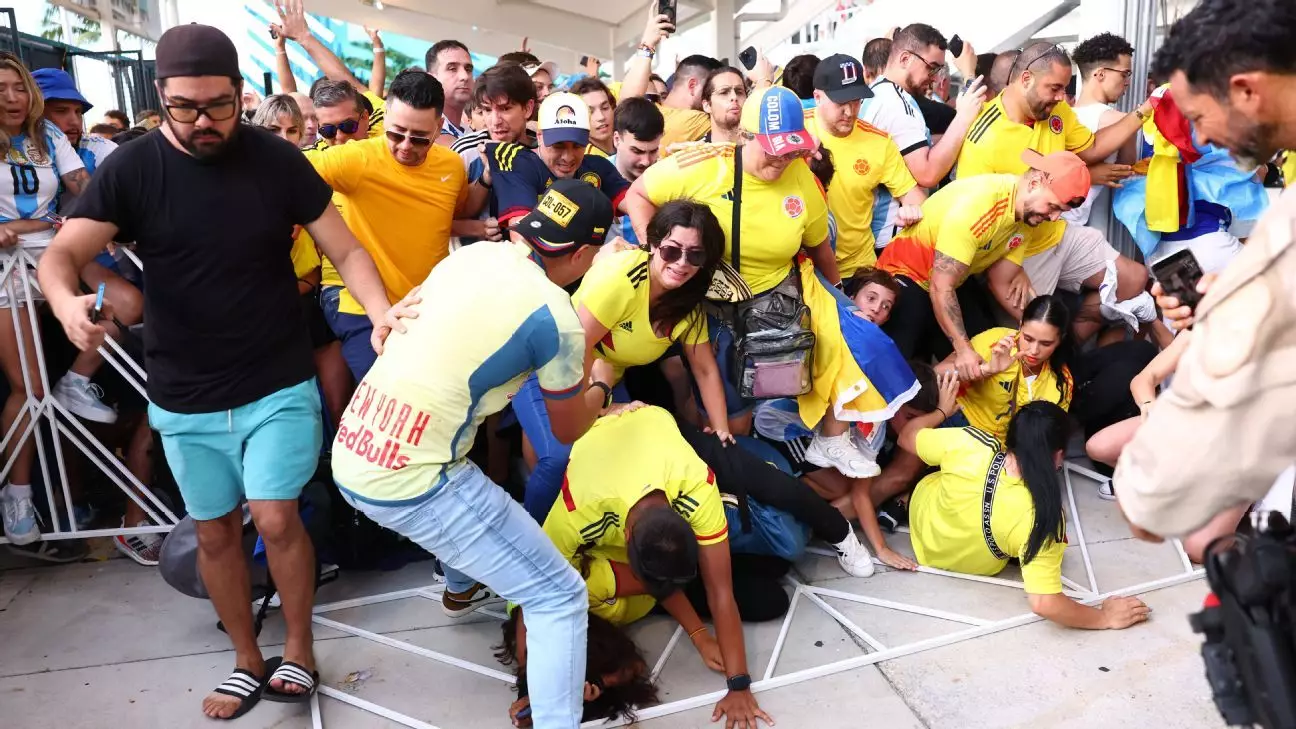Following the chaotic scenes that unfolded at Hard Rock Stadium during the Copa América final between Argentina and Colombia, the blame game between the stadium authorities and CONMEBOL was in full swing. Hard Rock Stadium pointed fingers at the organizing body, stating that they had followed, and even exceeded, security recommendations provided by CONMEBOL.
Miami-Dade police revealed that over 800 law enforcement officers were present at the match in an attempt to control the unruly crowds. Despite their efforts, 55 people were ejected from the stadium, and numerous arrests were made.
Hours before the scheduled kickoff, chaos ensued as ticketless fans attempted to force their way into the stadium. Fans disregarded security protocols, jumping over railings and running past authorities. The situation was exacerbated by the hysterical behavior of some individuals desperately searching for their companions.
The repercussions of the security breach at the Copa América final are significant, considering that the Hard Rock Stadium is set to host seven World Cup matches in 2026. The incident raises concerns about safety measures and crowd control strategies for upcoming events.
CONMEBOL, on the other hand, shifted blame back to Hard Rock Stadium, declaring that the facility failed to adhere to their recommendations for the final. The organization expressed disappointment over the breach in security that allowed unauthorized individuals to gain access to the stadium.
Lessons Learned
Security experts highlighted the need for organizers to anticipate the fervent behavior of passionate fans during high-profile matches. Drawing parallels to previous incidents, such as the chaos at the 2021 European Championship final in London, experts emphasized the importance of proactive planning to prevent similar occurrences.
The aftermath of the security scare at Hard Rock Stadium was evident in the significant damage caused to the venue. Videos and images shared on social media depicted vandalized property, broken railings, and an overall sense of disarray within the stadium premises.
In response to the escalating situation, stadium officials made a critical decision to open the gates to both ticketed and unticketed fans to avoid potential stampedes and injuries. However, this move left many legitimate ticket holders stranded outside the gates, unable to gain entry.
Impact on Future Events
As preparations for the upcoming World Cup in 2026 continue, the spotlight on stadium security has intensified. Authorities, organizers, and law enforcement agencies must collaborate effectively to establish robust safety protocols and prevent similar security lapses in the future.

Leave a Reply